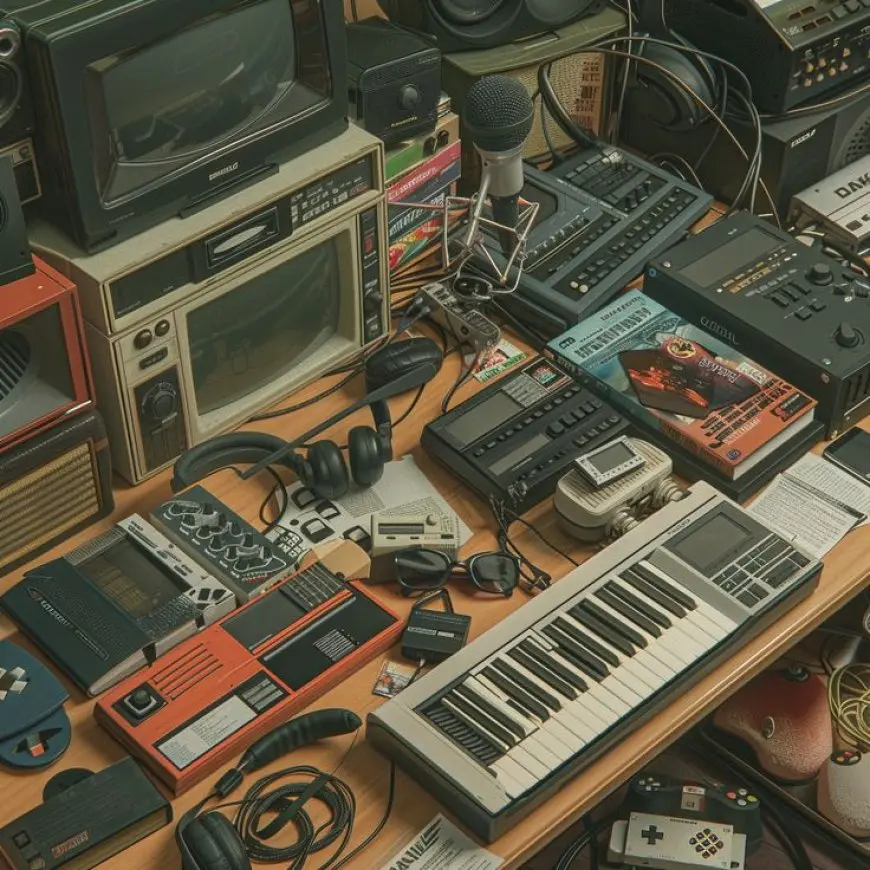The Influence of Video Game Music on Mainstream Culture
The Influence of Video Game Music on Mainstream Culture

Video game music has come a long way from its humble beginnings in the 8-bit era to becoming an influential part of mainstream culture. As video games have evolved into a dominant force in the entertainment industry, so too has the music associated with them. From catchy chiptune melodies to grand orchestral scores, video game music has not only defined the gaming experience but has also made a significant impact on broader musical landscapes.
The Early Beginnings: Chiptunes and 8-Bit Soundtracks
In the early days of video gaming, music was limited by the technological constraints of hardware. The soundtracks were composed using basic, synthesized tones, often referred to as chiptunes, which became iconic in their own right. Games like Super Mario Bros. and The Legend of Zelda featured melodies that were simple but highly memorable, creating an immersive atmosphere despite their simplicity. These early game soundtracks still hold a special place in gaming culture and continue to influence modern music.
As these early video game tunes became iconic, they sparked a sense of nostalgia and set the stage for video game music to become an essential part of mainstream culture. The catchiness of these songs, combined with their association with beloved games, allowed them to transcend the gaming world and make their way into pop culture.
Orchestral Scores and Epic Soundscapes
As gaming technology advanced, so did its music. The introduction of more powerful consoles and the ability to use higher-quality sound led to the creation of complex, orchestral scores. Games like Final Fantasy and The Elder Scrolls series brought video game music into the realm of cinematic compositions, with composers such as Nobuo Uematsu and Jeremy Soule creating sweeping, epic soundtracks that could rival those of major film scores.
The blending of orchestral arrangements and digital elements created a unique sound that appealed to both gamers and mainstream music enthusiasts. In fact, some video game soundtracks, such as the scores for Halo or The Last of Us, have been performed by symphony orchestras in live concert settings, further bridging the gap between video games and the broader music world.
Video Game Music in Popular Media
The influence of video game music extends beyond the confines of gaming itself. Many composers and artists have incorporated elements of video game music into their own work, blending electronic sounds and immersive melodies with mainstream music genres. For example, artists like Daft Punk and M83 have drawn inspiration from video game scores to create music that resonates with fans of both gaming and electronic music.
Additionally, video game music has found its place in popular media in a variety of forms. Soundtracks are regularly featured on streaming platforms like Spotify and Apple Music, allowing video game music to reach a wider audience. Concerts such as Video Games Live and events like the Game Awards celebrate video game music with live performances, further showcasing its impact on modern entertainment.
Nostalgia and Video Game Music’s Enduring Appeal
For many fans, video game music is deeply nostalgic. The music from a beloved childhood game can evoke strong emotional connections, transporting listeners back to simpler times. This nostalgic quality makes video game music a unique and enduring cultural phenomenon. It’s not only about the melodies themselves but also the memories and experiences they represent.
The continued popularity of retro gaming and the resurgence of 8-bit and chiptune music has helped keep the influence of early video game music alive. Today, a new generation of listeners is discovering these classic tunes, while older fans continue to embrace them as part of their cultural identity.
The Rise of Video Game Music in Popular Culture
As gaming has become more mainstream, so too has the music that accompanies it. Video game soundtracks are now regularly charting on the Billboard music charts, and artists are releasing albums inspired by or based on video game themes. This trend has solidified video game music as an integral part of contemporary pop culture.
The success of video game-themed events, such as concerts featuring live video game scores, further exemplifies how ingrained video game music has become in mainstream culture. These events attract not only gamers but also music lovers and general audiences who appreciate the artistic value of the music.
The Cross-Generational Appeal of Video Game Music
One of the key aspects of video game music’s influence is its ability to cross generational lines. Older fans, who grew up with games like Pac-Man and Donkey Kong, share their love for the music with younger generations who are drawn to modern, high-fidelity scores in games like The Witcher 3 or Red Dead Redemption 2.
Video game music has the power to bring together different age groups, creating a shared cultural experience. Whether through remixes, covers, or live performances, the connection between video game music and popular culture continues to grow stronger.
The Future of Video Game Music in Mainstream Culture
As gaming technology continues to advance, so too will the music that accompanies it. Virtual reality (VR) and augmented reality (AR) are poised to change the way video game music is experienced, offering new, immersive ways to engage with sound. This will likely lead to even more innovative soundtracks and collaborations between video game composers and mainstream musicians.
The increasing recognition of video game music as a legitimate art form suggests that its influence will continue to shape popular culture for years to come. Its blend of innovation, nostalgia, and







